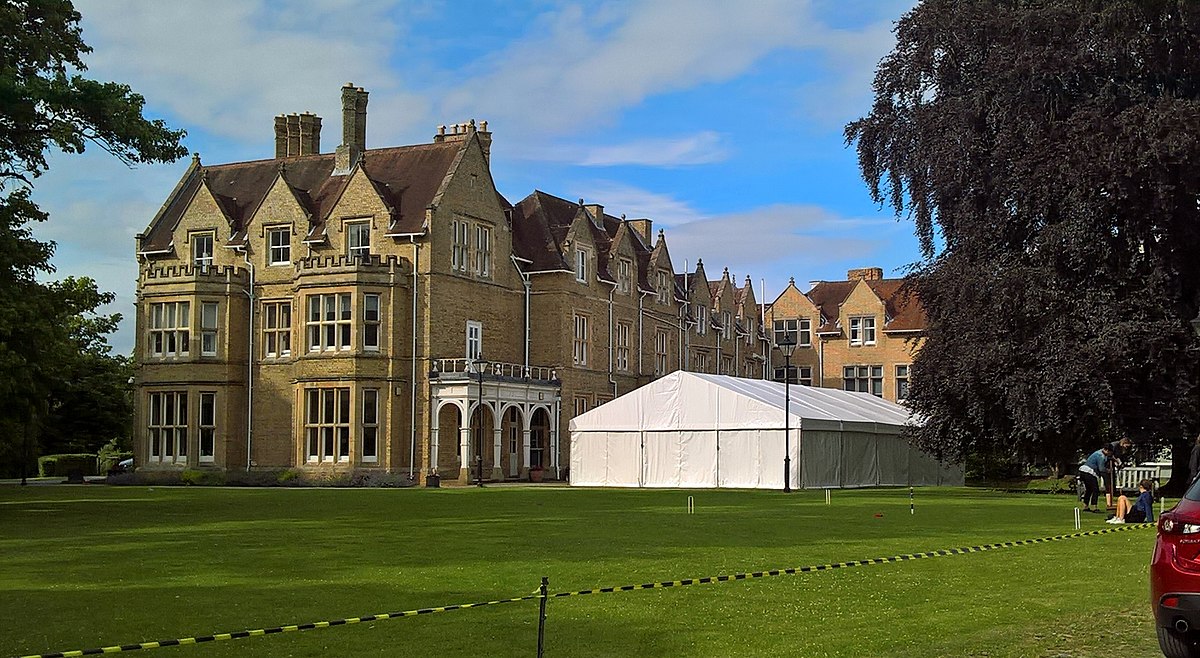This academic year marks the 100-year anniversary of the first formal admission of female students into the University of Oxford. It is a tremendous milestone and one that is prompting both colleges and departments alike to reflect on the immense progress and achievements that have been made over the last century, as well as renewing focus on issues surrounding gender equality today.
It is unsurprising, therefore, to see such a fusion of past and present at the energetic heart of this year’s St Hilda’s Feminist Festival, held earlier this term. Refusing to fall victim to the now all-too-familiar ‘Zoom fatigue’, this year’s committee has delivered what is arguably the festival’s most impressive array of events and speakers to date.
Famous faces, ranging from Bridgerton’s Golda Rosheuvel to TV’s Victoria Coren Mitchell and Katherine Parkinson, were joined by business leaders, writers, sportswomen, and academics in an eight-day selection of panel discussions and informal chats. Despite the big names, meaningful and personable conversations remain a major takeaway from this year’s festival, which – despite spanning little more than a week – brought as many as 33 speakers to our screens. The committee issued as many as 474 tickets and made over 15,000 social media impressions in February alone. It is not a bad feat for a student-led initiative organised in the midst of a global pandemic.
It will therefore not come as a huge shock to hear that this year’s organiser, Jo Baptista, started planning for this as early as August last year, at which point she was still holding out “some hope” that events may even be able to take place in person, although an online festival did remain a strong possibility.
So has the transition to Zoom calls been a disappointing one? On the one hand, yes. Jo admits that the “sense of community” which had played such an integral role in St Hilda’s previous feminist festivals was sadly lacking this year. Her point is a valid one. Both the 2019 and 2020 festivals took place when the social landscape was somewhat less arid, playing host to events as varied as film nights, cookery classes and even charity fun runs – activities which thrive on spontaneous fun and a certain sense of collective student joy.
In other respects, however, Zoom has been a blessing in disguise. The energy that this year’s committee has brought to the most recent festival, coupled with Jo’s own tenacious entrepreneurial creativity, have ensured a well-executed shift to the digital format, with uptake reported to “possibly be one of the highest yet,” according to organisers. Whilst this is in no small part thanks to the high-profile line-up of speakers, it is also perhaps owing to a certain humanisation which stems from seeing guest-speakers in their home environments, combatting the all-too-relatable plights of laptop camera angles, as opposed to standing archaically at the front of some lecture hall or seminar room. In many ways, a stage can be more distancing than a screen.
The virtual set-up has also allowed for a certain broadening of the festival’s demographic in ways that in-person events would most likely have prevented. In the first instance, many Oxford students remain stuck at home, which has granted both siblings – and even parents – the chance to get a glimpse into some of this year’s talks.
Most notably, however, 2021’s Feminist Festival has seen a tremendously high turnout of school pupils, many of whom may be considering applying for Oxford themselves in the coming years. This was in part thanks to Jo’s own links to youth organisations, such as The Diana Award, STEMettes, and Women of the Future, but is a testament to a broader access commitment within the St Hilda’s community.
So was the Feminist Festival designed as an access event? Whilst this was admittedly never the intention, it has inevitably “put Hilda’s on the map”, according to Jo. Tucked away on the other side of the Cherwell on the outskirts of Oxford city centre, it is easy for potential applicants to overlook St Hilda’s on open days. Events which reach out beyond the Oxford bubble are thus of vital importance to the college community, and more broadly play a role in university access as a whole, as they typify some of the amazing opportunities available outside of students’ degrees.
It is also fair to say that this year’s Feminist Festival was not just about getting St Hilda’s name out there, but redefining it in a more inclusive way. Last year, the college hit national headlines due to the controversy surrounding one of its professors, who “had her invitation rescinded from a feminist conference” back in February 2020. This – coupled with the delayed decision over the future of the Rhodes statue – have perhaps served to sully the ‘Oxford’ label in recent months.
For this year’s festival committee, it was thus perhaps as much about getting inclusive names as it was about getting high-profile ones. Speakers included Jack Doyle, who works closely with LGBTQ mental health charity Mind Out; Khadijah Mellah, the UK’s first female Muslim horse-rider and the first jockey to compete wearing a hijab; and Vee Kativhu, former Oxford student and champion of empowerment and access to education.
When asked about the diversity within this year’s events, Jo credits her fantastic committee for continually re-examining potential line-ups and pushing for a broader selection of voices. The ethos at the heart of the festival? Offering “something for everyone”, be it insights into ethically-sourced fashion and sustainable period products, or why we should all be intersectional feminists. For a festival that was originally founded as a nod to St Hilda’s own legacy as the last of Oxford’s all-female colleges, this year’s panel feels remarkably forward-looking, delving into a range of contemporary issues. Jo’s own personal highlight? “Knowing that everyone else really enjoyed it!” And in an age so marred by division, tedium, and pessimism, you really cannot ask for more than that.
Image Source: Edward Hart/Wikimedia Commons

